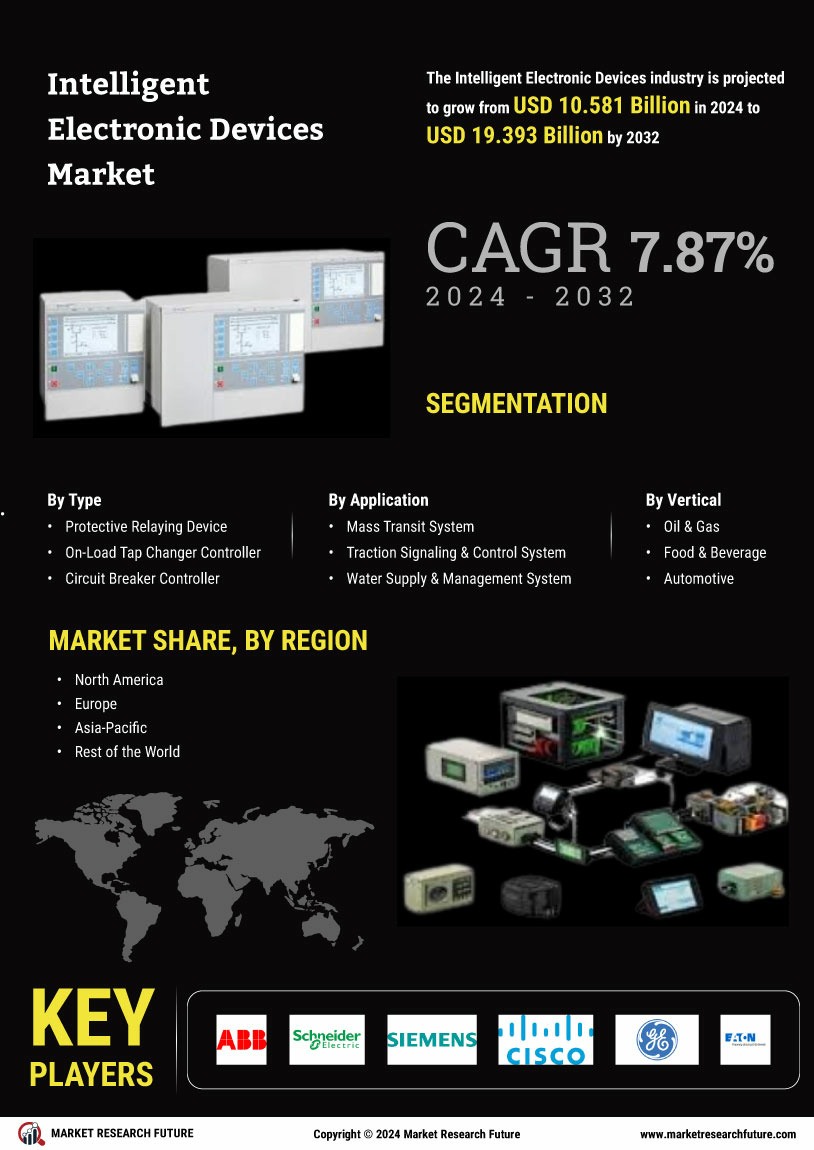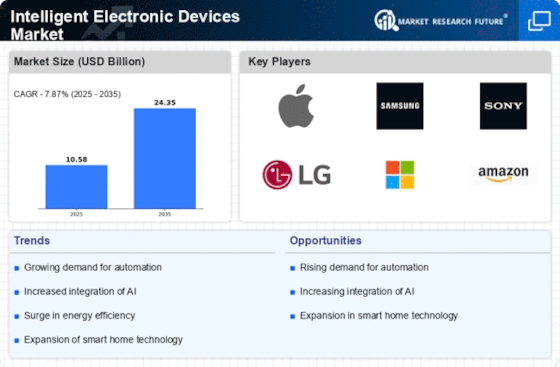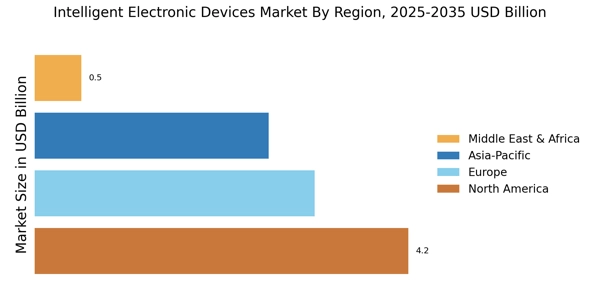Advancements in IoT Technology
The Intelligent Electronic Devices Market is experiencing a surge due to advancements in Internet of Things (IoT) technology. The proliferation of connected devices enhances the functionality and interactivity of electronic products, leading to increased consumer demand. As of 2025, it is estimated that the number of connected devices will reach over 30 billion, creating a vast ecosystem for intelligent devices. This interconnectedness allows for seamless communication between devices, improving user experience and efficiency. Furthermore, the integration of IoT in various sectors, such as healthcare and automotive, is driving innovation and expanding market opportunities. Companies are increasingly investing in IoT solutions to enhance their product offerings, which is likely to propel the growth of the Intelligent Electronic Devices Market.
Growing Demand for Wearable Technology
The Intelligent Electronic Devices Market is significantly influenced by the growing demand for wearable technology. As consumers become more health-conscious, the market for fitness trackers, smartwatches, and health monitoring devices is expanding rapidly. In 2025, the wearable technology segment is projected to account for a substantial share of the overall electronic devices market, with revenues expected to exceed 100 billion dollars. This trend is driven by the increasing integration of advanced sensors and connectivity features in wearables, enabling real-time health monitoring and data analysis. Additionally, the rise of telehealth services and remote patient monitoring is further propelling the adoption of wearable devices. Consequently, manufacturers are focusing on developing innovative and user-friendly products to cater to this growing consumer base, thereby enhancing the Intelligent Electronic Devices Market.
Emphasis on Energy Efficiency and Sustainability
The Intelligent Electronic Devices Market is increasingly emphasizing energy efficiency and sustainability. As environmental concerns gain prominence, consumers are seeking electronic devices that minimize energy consumption and reduce carbon footprints. In 2025, the market for energy-efficient devices is projected to grow substantially, driven by regulatory initiatives and consumer preferences for sustainable products. Manufacturers are responding by developing intelligent devices that incorporate energy-saving technologies, such as smart thermostats and energy-efficient appliances. This trend not only aligns with global sustainability goals but also appeals to environmentally conscious consumers. As a result, the Intelligent Electronic Devices Market is likely to witness a shift towards more sustainable product offerings, fostering innovation and growth in the sector.
Integration of Artificial Intelligence in Devices
The Intelligent Electronic Devices Market is being transformed by the integration of artificial intelligence (AI) in electronic devices. AI technologies enhance the functionality of devices, enabling them to learn from user behavior and adapt accordingly. This capability is particularly evident in smart assistants, home automation systems, and personalized consumer electronics. As of 2025, the AI market within the electronic devices sector is expected to grow significantly, with projections indicating a potential market size of over 50 billion dollars. The incorporation of AI not only improves user experience but also drives efficiency and performance in various applications. Consequently, manufacturers are increasingly focusing on developing AI-enabled products, which is likely to propel the growth of the Intelligent Electronic Devices Market.
Rising Consumer Awareness of Smart Home Solutions
The Intelligent Electronic Devices Market is witnessing a notable rise in consumer awareness regarding smart home solutions. As individuals seek to enhance their living environments, the demand for smart appliances, security systems, and energy management devices is increasing. In 2025, the smart home market is projected to reach approximately 150 billion dollars, reflecting a growing trend towards automation and convenience. This shift is driven by the desire for improved energy efficiency, security, and overall quality of life. Consumers are increasingly recognizing the benefits of integrating intelligent devices into their homes, leading to a surge in product offerings from manufacturers. As a result, the Intelligent Electronic Devices Market is likely to experience robust growth, with companies investing in innovative technologies to meet evolving consumer preferences.
















